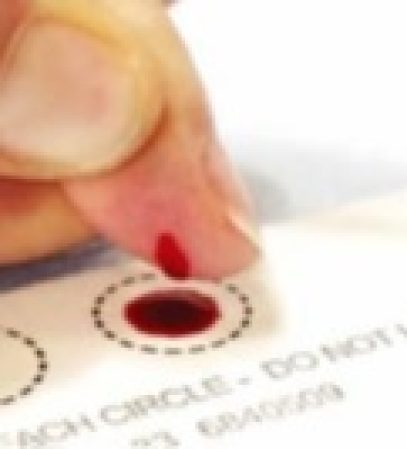Overview
Dried Blood Spot testing employs a micro-sampling device (a paper card) to collect capillary blood, typically obtained from the finger of the human subject.
The blood is let to dry on the card, which is then transferred to the lab for analysis.
DBS testing has been a key tool in screening for metabolic disorders for some decades now. Only recently, DBS tests start penetrating other areas.
ThetaBiomarkers develops analytical methods for several types of biomolecules in collaboration with DBS developers.
Features
DBS sampling can be more patient/volunteer friendly.
In comparison to typical venous blood draw, DBS blood collection is easier and less-invasive. DBS samples are typically stored at ambient temperatures and are shipped as non-hazardous material. Hence, the specimen offers reduced costs for sampling and transporting, and advantages in sampling from remote populations or people that are vulnerable e.g. immunosuppressed patients in need for frequent sampling and other such patients communities.

Solution
ThetaBiomarker DBS portfolio
We offer validated methods for acylcarnitine and ceramides analysis in DBS (UPLC-MS/MS).
We are developing metabolomic profiling methods utilizing DBS (UPLC-qTOF-MS).
ThetaBiomarker scientists lead HUMAN an EU funded research project (2022-2026) that aims on improving and harmonizing methods for blood/DBS metabolomics.

Safety
Patient centric sampling.
No cold chain.
Improved
High quality DBS devises facilitate quantitative analyses.
Increased
A new way to reach patient and promote diagnosis and monitoring.
